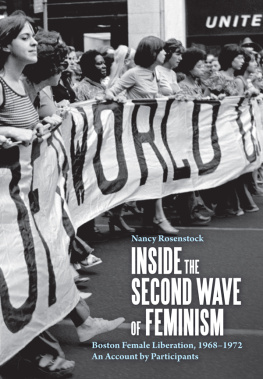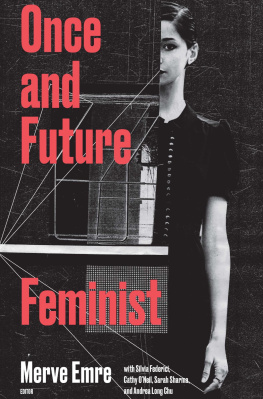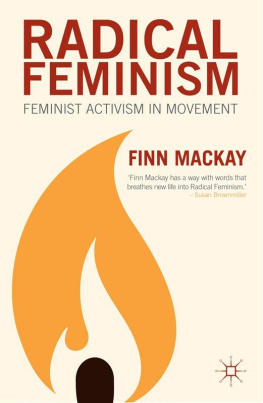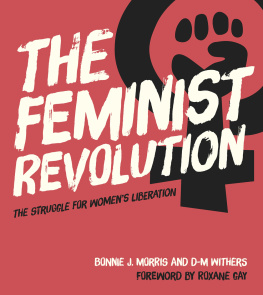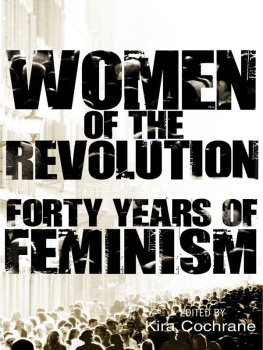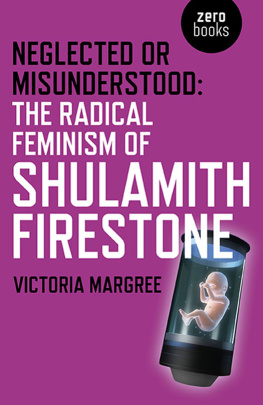
The author and publisher have provided this e-book to you for your personal use only. You may not make this e-book publicly available in any way. Copyright infringement is against the law. If you believe the copy of this e-book you are reading infringes on the authors copyright, please notify the publisher at: us.macmillanusa.com/piracy.
Contents
for
Simone de Beauvoir
who endured
When we consider and reflect upon Nature at large or the history of mankind or our own intellectual activity at first we see the picture of an endless entanglement of relations and reactions, permutations and combinations, in which nothing remains what, where, and as it was, but everything moves, changes, comes into being and passes away. We see therefore at first the picture as a whole with its individual parts still more or less kept in the background; we observe the movements, transitions, connections, rather than the things that move, combine, and are connected. This primitive, naive, but intrinsically correct conception of the world is that of ancient Greek philosophy, and was first clearly formulated by Heraclitus: everything is and is not, for everything is fluid, is constantly changing, constantly coming into being and passing away.
FRIEDRICH ENGELS
Key to Abbreviations
AFL | American Federation of Labor |
DAR | Daughters of the American Revolution |
NAACP | National Association for the Advancement of Coloured People |
NAWSA | National American Woman Suffrage Association |
NOW | National Organization of Women |
SDS | Students for a Democratic Society |
VISTA | Volunteers in Service to America |
WRM | Womens Rights Movement |
The author would like to note that this book remains unabridged and unrevised since its original publication in 1970.
1 The Dialectic of Sex
Sex class is so deep as to be invisible. Or it may appear as a superficial inequality, one that can be solved by merely a few reforms, or perhaps by the full integration of women into the labour force. But the reaction of the common man, woman, and child That? Why you cant change that! You must be out of your mind! is the closest to the truth. We are talking about something every bit as deep as that. This gut reaction the assumption that, even when they dont know it, feminists are talking about changing a fundamental biological condition is an honest one. That so profound a change cannot be easily fitted into traditional categories of thought, e.g., political, is not because these categories do not apply but because they are not big enough: radical feminism bursts through them. If there were another word more all-embracing than revolution we would use it.
Until a certain level of evolution had been reached and technology had achieved its present sophistication, to question fundamental biological conditions was insanity. Why should a woman give up her precious seat in the cattle car for a bloody struggle she could not hope to win? But, for the first time in some countries, the preconditions for feminist revolution exist indeed, the situation is beginning to demand such a revolution.
The first women are fleeing the massacre, and, shaking and tottering, are beginning to find each other. Their first move is a careful joint observation, to resensitize a fractured consciousness. This is painful: no matter how many levels of consciousness one reaches, the problem always goes deeper. It is everywhere. The division yin and yang pervades all culture, history, economics, nature itself; modern Western versions of sex discrimination are only the most recent layer. To so heighten ones sensitivity to sexism presents problems far worse than the black militants new awareness of racism: feminists have to question, not just all of Western culture, but the organization of culture itself, and further, even the very organization of nature. Many women give up in despair: if thats how deep it goes they dont want to know. Others continue strengthening and enlarging the movement, their painful sensitivity to female oppression existing for a purpose: eventually to eliminate it.
Before we can act to change a situation, however, we must know how it has arisen and evolved, and through what institutions it now operates. Engelss [We must] examine the historic succession of events from which the antagonism has sprung in order to discover in the conditions thus created the means of ending the conflict. For feminist revolution we shall need an analysis of the dynamics of sex war as comprehensive as the Marx-Engels analysis of class antagonism was for the economic revolution. More comprehensive. For we are dealing with a larger problem, with an oppression that goes back beyond recorded history to the animal kingdom itself.
In creating such an analysis we can learn a lot from Marx and Engels: not their literal opinions about women about the condition of women as an oppressed class they know next to nothing, recognizing it only where it overlaps with economics but rather their analytic method.
Marx and Engels outdid their socialist forerunners in that they developed a method of analysis which was both dialectical and materialist. The first in centuries to view history dialectically, they saw the world as process, a natural flux of action and reaction, of opposites yet inseparable and interpenetrating. Because they were able to perceive history as movie rather than as snapshot, they attempted to avoid falling into the stagnant metaphysical view that had trapped so many other great minds. (This sort of analysis itself may be a product of the sex division, as discussed in Chapter 9.) They combined this view of the dynamic interplay of historical forces with a materialist one, that is, they attempted for the first time to put historical and cultural change on a real basis, to trace the development of economic classes to organic causes. By understanding thoroughly the mechanics of history, they hoped to show men how to master it.
Socialist thinkers prior to Marx and Engels, such as Fourier, Owen, and Bebel, had been able to do no more than moralize about existing social inequalities, positing an ideal world where class privilege and exploitation should not exist in the same way that early feminist thinkers posited a world where male privilege and exploitation ought not exist by mere virtue of good will. In both cases, because the early thinkers did not really understand how the social injustice had evolved, maintained itself, or could be eliminated, their ideas existed in a cultural vacuum, utopian. Marx and Engels, on the other hand, attempted a scientific approach to history. They traced the class conflict to its real economic origins, projecting an economic solution based on objective economic preconditions already present: the seizure by the proletariat of the means of production would lead to a communism in which government had withered away, no longer needed to repress the lower class for the sake of the higher. In the classless society the interests of every individual would be synonymous with those of the larger society.
But the doctrine of historical materialism, much as it was a brilliant advance over previous historical analysis, was not the complete answer, as later events bore out. For though Marx and Engels grounded their theory in reality, it was only a partial reality. Here is Engelss strictly economic definition of historical materialism from Socialism: Utopian or Scientific:
Next page

